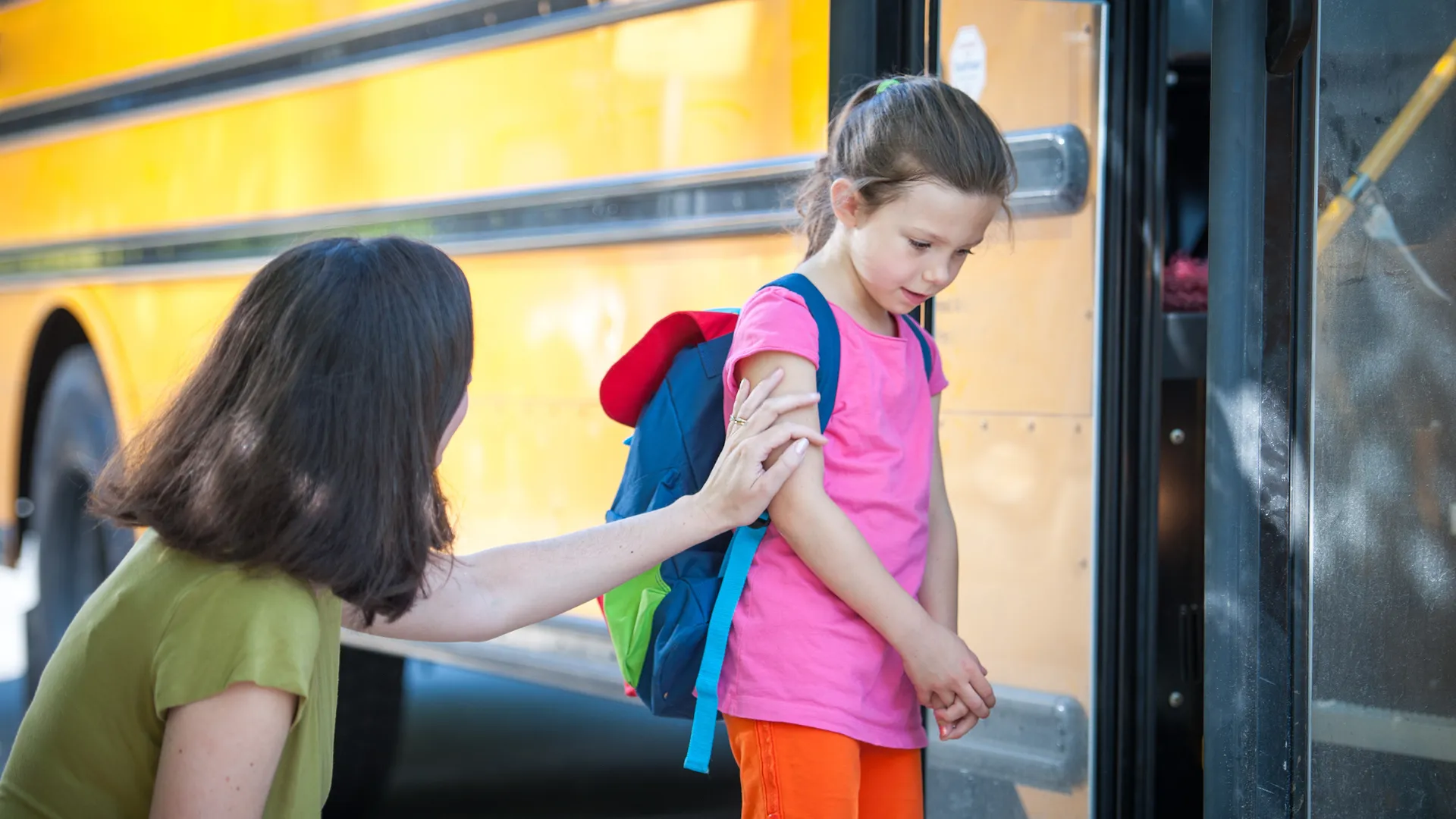Helping Kids Dealing with Back-To-School Anxiety
While back-to-school is an exciting time for some kids, it can be anxiety-provoking for others. Additionally, students this year are faced with new stressors including health concerns around COVID-19 and adjusting to in-person learning. Some younger clients who’d spent the previous school year at home may develop anxiety about being separated from you. We talked to Hopscotch Head of Behavioral Health Content z-andrew-jatau, MS, LPC, about how to address these concerns and help your child successfully transition back to school.
Health-Related Anxiety
Kids returning to school may express health and safety concerns surrounding the rising number of COVID-19 cases nationwide. They may fear close contact on the bus, in the classroom, or during social interactions. Their anxiety may cause them to distance themselves from peers and activities that they may have enjoyed the year prior. You may also notice increased defiance in the home about going to school.
Allow them to express their feelings
Allow your child to fully express their fears and concerns without judgment. Validate how they are feeling and act as a source of support. Recognize that their concerns about safety are legitimate, but also work with your child to challenge any irrational thoughts or negative thinking patterns that may be occurring. While being concerned about the pandemic is rational, children should recognize that catastrophizing is not helpful and will only worsen their fears.
Create an action plan
Help your child feel prepared by asking them what they feel they need to do in order to feel safe while at school. Help them find options within their control, such as wearing a mask, avoiding crowded places, and washing their hands frequently. You can also explore the health protocols put in place at their school. This could help your child to understand that the school has rules and guidelines to keep students and teachers safe. The more control your child has over their situation and environment, the less anxious they may feel.
Role-play difficult conversations
With some states banning mask mandates in schools, your child may be around other students making the choice not to wear a mask. Unfortunately, the divisiveness of mask-wearing can cause some kids to be teased because of how they choose to keep themselves safe. Empower your child with the language to know how to respond to hurtful comments they may receive. Engage your child in role-play so that they can learn and practice healthy ways of coping if teasing or bullying occurs. Come up with possible statements they may hear from peers in school, and let your child practice what they might say or do in those situations.
Provide coping skills for separation anxiety
Some children may experience separation anxiety about leaving home and being apart from you. Talk to your child about things they can do when they miss you, such as carrying an object or a picture that reminds them of you or another family member. Starting new traditions or having a fun activity planned for when the client gets home is another great option. Allow your child to process and share their thoughts and feelings. If you recognize that they are engaging in irrational thinking, work with them to challenge their negative thoughts.
This fall, students are being met with new sources of stress and anxiety, but they also have a unique opportunity to develop resiliency by learning healthy ways to cope with anxiety. With the skills you empower your child with, they can go back to school with the confidence they need to succeed.
Read On

The Benefits of Online Therapy for Anxiety in Children

Child Anxiety Treatment at Home: What the Experts Say






